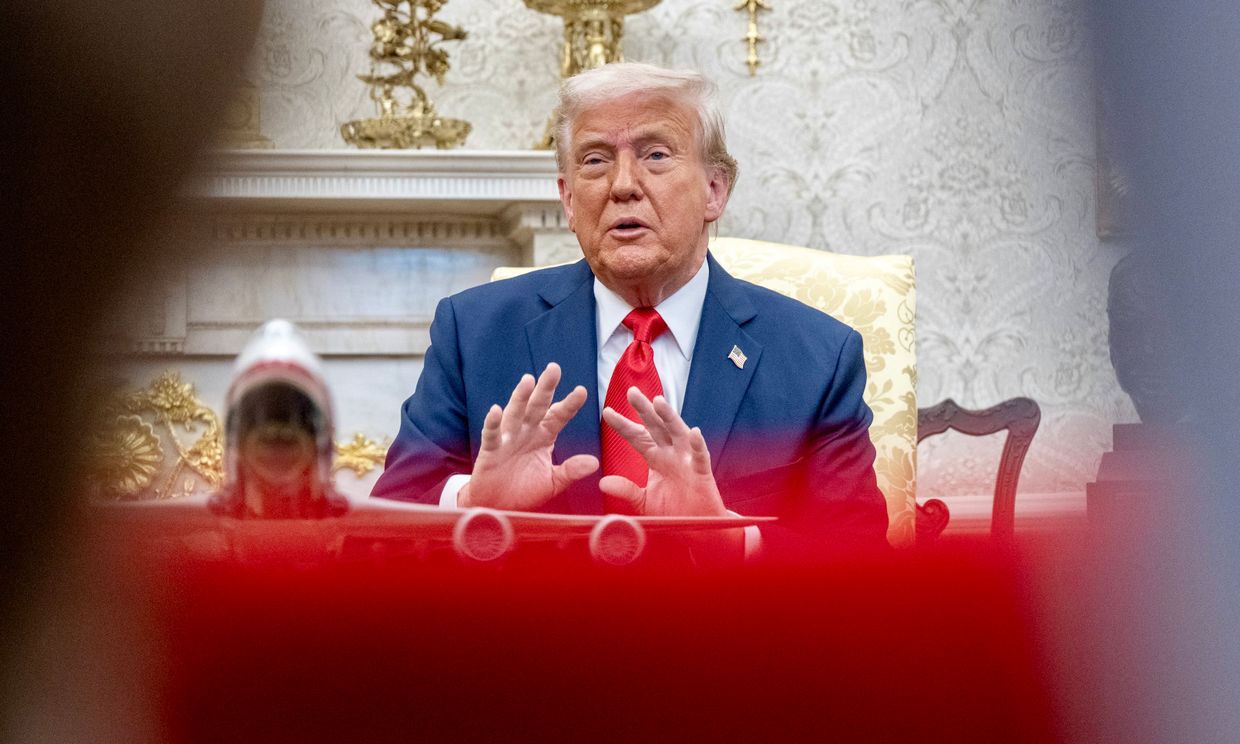Witkoff says '5 territories' key to proposed Russia-Ukraine deal after meeting Putin

Editor's Note: This article has been updated to include President Volodymyr Zelensky's response.
U.S. Special Envoy Steve Witkoff said on April 14 that his recent talks with Russian President Vladimir Putin were "compelling" and centered around a possible peace deal based on the status of "five territories."
Witkoff, who met with Putin in St. Petersburg on April 11, described the meeting as productive, claiming the Russian president expressed a desire for "a permanent peace," though it "took a while for us to get to" that point.
"This peace deal is about these so-called five territories," Witkoff said in comments for Fox News. "But there's so much more to it. I think we might be on the verge of something that would be very important for the world at large."
Though Witkoff did not name the territories directly, he appeared to refer to Crimea, illegally annexed by Russia in 2014, and the partially occupied Donetsk, Luhansk, Zaporizhzhia, and Kherson oblasts. Moscow declared the annexation of the latter four regions in 2022.
The envoy also hinted at a broader strategic ambition tied to business incentives. "I see a possibility of reshaping the Russian-United States relationship through some very compelling commercial opportunities," Witkoff said. "That gives real stability to the region too."
President Volodymyr Zelensky reacted to Witkoff's proposal during a press conference alongside NATO Secretary General Mark Rutte in Odesa on April 15. Zelensky once again stressed the importance of Ukraine's sovereignty and said non-Ukrainians should not speculate about territorial concessions.
"Ukraine is a sovereign state, and all territories belong to the unified state of Ukraine," the president said.
"Therefore, again, only the people of Ukraine can speak about the territories of our state. And you know that for us it is a red line to recognize any temporarily occupied territories as not Ukrainian, but Russian. Therefore, again, the relevant representatives are discussing issues outside their competence."
Some U.S. officials have raised alarms over the direction of the Trump administration's diplomacy. The Wall Street Journal reported that Secretary of State Marco Rubio and Special Envoy for Ukraine Keith Kellogg are urging President Donald Trump to resist territorial concessions to Moscow.
Despite the appeals, Trump is siding with Witkoff, who argues that Putin is interested in reaching a peace deal, the outlet wrote.
According to Reuters, Witkoff told Trump that recognizing Russian control over the four partially occupied regions would be the quickest way to secure a ceasefire. This approach mirrors Kremlin demands and has sparked concern among Kyiv's allies.
Despite ceasefire efforts, Russia continues to reject the full 30-day ceasefire proposal backed by the United States and supported by Ukraine. A partial truce covering energy infrastructure has repeatedly been violated by Russian forces.
Witkoff, who has visited Russia several times this year and serves as Trump's top negotiator, has drawn criticism for adopting Kremlin talking points, particularly regarding the nature of Russia's occupation and the prospects of trading territory for peace.
Since returning to office in January, the Trump administration has resumed direct talks with the Kremlin and signaled a diminished commitment to Ukraine's defense, even as Russia intensifies attacks on civilian areas.












